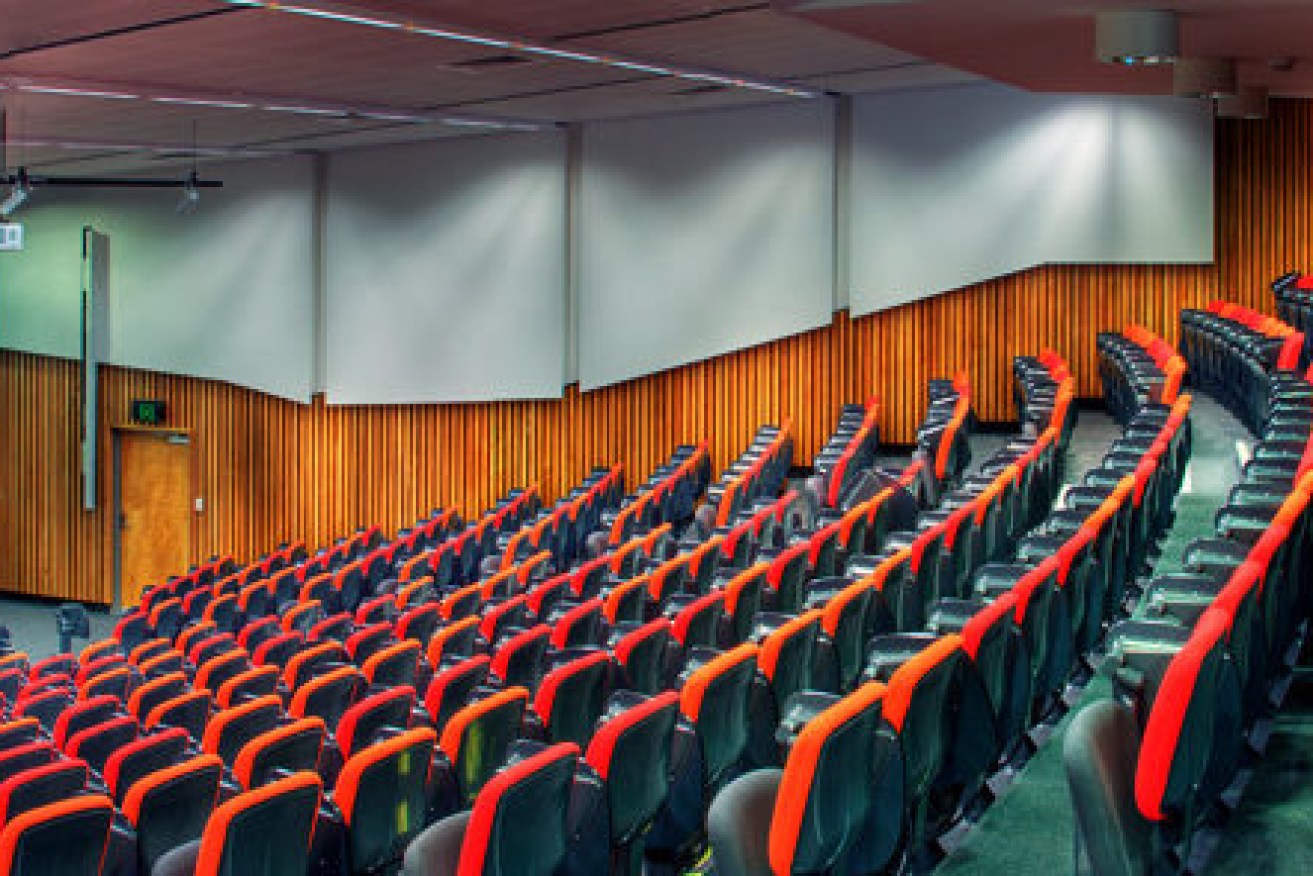Frozen meals and fee relief: Unis rally to support foreign students
With Australia’s higher-education sector tipped to lose up to $4.6 billion in revenue this year, Queensland universities are doing all they can to retain international students.

University lecture theatres remain empty. Source: University of Queensland
The Federal Government announced an economic relief package for universities in April, including an $18 billion funding guarantee to cover domestic enrolments and $100 million in regulatory fee relief and deferrals.
However, the timing of the pandemic resulted in first semester classes being hit hard, forcing most courses online, and universities are now monitoring enrolments for second-semester classes for a further reduction in student numbers.
At several Queensland universities, there are signs that domestic enrolments will increase in semester two, reflecting rising unemployment, but not enough to offset the decline in international students due to indefinite travel bans. The loss of their fee revenue will be significant and affect university-wide operations.
Existing international students in Queensland have been offered support by various means, including universities literally putting food on their table. The University of Queensland has already distributed 4000 free hampers, while Griffith University and Queensland University of Technology will link up with community organisations to distribute thousands of frozen meals over the coming weeks.
JCU has set up a Food Pantry for struggling students and CQUniversity has arranged the delivery of thousands of emergency relief packages for its students across Australia. Some students have even been given free accommodation.
Universities may be taking a hit to revenue, but there is an acknowledgment that international students may not be able to work to support themselves during the pandemic, and that losing them from the system may have a lasting impact. Some fees are being waived, or reduced, and universities have ramped up outreach programs.
Hardship grants, funds and loans have been established, bursary schemes expanded, and thousands of laptops given out to students having to learn remotely. Some students are still in Queensland, while others have returned overseas or based themselves interstate.
At Griffith, more than $2 million has already been dispersed via the COVID-19 Student Support Bursary to help vulnerable students transition to online study. The bursary, open to both international and domestic students, has now been increased to $5 million – community donations are welcome – and will reopen for another round of applications shortly.
“More than 2200 domestic and international students have already received COVID-19 support bursaries,” said a Griffith spokeswoman.
Part of USQ’s support package includes one-off or fortnightly contributions to student living expenses of up to $500 – and for as long as three months.
While some universities said it was too early to predict Semester 2 enrolments, others gave a bleak, if somewhat mixed, view of the situation.
CQU reported domestic interest in enrolment “remains steady” while a JCU spokesman said domestic undergraduate applications via QTAC were up 7.7 per cent for semester 2.
“We have seen an increase in international student applications for Semester 2, but we don’t believe travel restrictions will allow international students to obtain visas to commence study in Semester 2,” the spokesman said.
A Bond University spokesman said acceptances from international students were “significantly down year-on-year for the upcoming trimester”.
Universities Australia chief executive Catriona Jackson this week sought to remind governments that international education was the fourth largest export industry, worth an estimated $39 billion.
Jackson acknowledged state and territory governments, including Queensland, had provided support, but called for Australia to rally behind international students for the longer term.
“Through no fault of their own, many of the more than 310,000 higher education students living and studying in Australia have lost their part-time jobs,” Jackson said.
“They are not eligible for the same support local students can get through JobKeeper and JobSeeker.”












